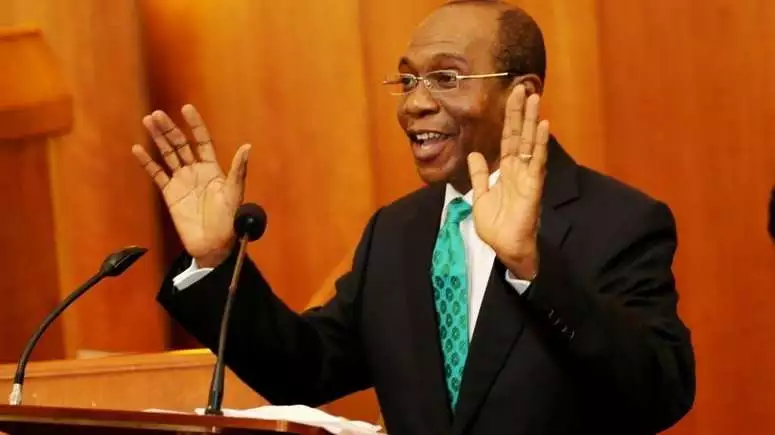By Bayo Bernard, Business Editor
Nigerian- based commercial banks are not smiling at all after losing billions of naira to the Ghanaian government debt default during the 2022 Financial year.
At least, no fewer than four tier-one commercial banks in the country have all released their full-year statements which clearly showed that they recorded terrible losses in the West African country which at the moment is facing a serious debt crisis.
Records from some banks that invested in the Ghana sovereign bonds, and have released their report indicate an estimated impairment of over N284 billion.
These banks include Access Bank, which released its full-year 2022 report last week; Zenith Bank, UBA and Ecobank Transnational.
The four banks recorded a combined N284 billion losses following the decision of the Ghanaian government to restructure its debt due to the ongoing economic crisis which has tested one of the strongest economies in the West African sub-region.
With the statement of First Bank and Fidelity Bank Plc still being awaited, financial experts insist that the impairments will likely rise to at least N300 billion by the time the two commercial banks make their financial statements public in a few days.
“The sky was not blue for Nigerian banks who have exposed to the Ghanaian government’s sovereign debt to the tune of billions last year. The economic headwinds in that country have affected some Nigerian-based commercial banks with serious effects on their balance sheet. In fact, some banks deliberately delayed the release of their financial statements as a result of what happened in Ghana which threw many of them off balance,” James Harrison, an expert said.
According to him, many banks will now be very cautious before investing in the country’s government bonds in the future.
“This is because the economy of Ghana has not shown any sign of recovery to encourage any short-term investments, and investors will consider it a very high risk to invest in that economy, according to Festus Adedeji an investment expert who spoke with the magazine.
He said Nigerian-based commercial banks would have been worse hit if ” they suffered the same fate in Nigerian and other countries where they have invested in government bonds”, adding that the “problem in Ghana played a huge role on the losses declared by Nigerians banks for the year ending December 222,” despite the fact that some of them raised the bar in critical metric indices during the financial ending December 2023.
He explained that the situation is not totally bad for the affected banks who have succeeded in making up in other areas.
For instance, Access Bank (Access Holdings) declared in the statement released last week that its earning has hit over N 1.4 trillion, the very first time that a commercial bank in the country has earned so much revenue despite the serious economic challenges.
“Access Holdings Plc Full Year 2022 financial results showed strong growth across revenue lines, despite the strong macroeconomic headwinds locally & internationally,” the bank said.
“We registered a record revenue of ₦ 1.4 trillion a 43% y/y growth (FY’21: ₦971.9) as we begin to see the dividends of organic & inorganic activities across the ecosystem. Access Holdings Plc recorded a Profit Before Tax of ₦167.7 billion, 5% y/y decline (FY’21: ₦ 176.6bn) following huge write-downs from the Ghana sovereign debt crisis.”
On its part, Guarantee Trust Company, GTCO explained in its statement released two weeks ago, that it advanced more loans to customers during the period in spite of the economic challenges across its market channels apart from its customers’ deposits which grew significantly.
According to the details provided in the statement, the Group’s loan book increased by 4.6 percent from ₦1.80 trillion as at December 2021 to ₦1.89trillion in December 2022, while deposit liabilities grew by 11.6 percent from ₦4.13trillion to ₦4.61trillion during the same period.
The Group Managing Director of GTCO, Segun Agabje said “As an organisation, 2022 was quite significant for us being the first year after our corporate restructuring into a financial holding company in August 2021. Today, across our Banking, Payment, Funds Management, and Pension businesses, we have successfully built a robust ecosystem with immense potential to deepen our addressable market and create more value for all our stakeholders.
“We will continue to prioritise innovation, service excellence, and execute seamlessly towards achieving our vision of leading financial services in Africa.”
Africa’s Global Bank, the United Bank for Africa, UBA, Plc said in its statement that it recorded impressive performance across metric lines particularly, its profit after tax, PAT, which grew by over 40 percent to N170 billion as at December 2022.
According to the Group Managing Director, Oliver Alawuba, “The Group delivered record headline earnings (+29.2%) and profitability (+31.2%) amid significant headwinds in markets where we are present and a heightened global risk environment.
“Our record earnings, growth, and robust capital levels supported higher returns for the shareholders. The Group is on course to achieve its strategic goals, and we are confident we will deliver our targets.
“We have navigated unprecedented macroeconomic headwinds and made significant gains in our diversification strategy and Customer 1st philosophy as we build resilience in our operations across Africa and the Rest of the World to support the mission of providing superior value to our stakeholders.”
Meanwhile, keen watchers in the sector said shareholders of these banks are the ultimate losers as the affected banks will not be able to declare fair dividends to them within the period under review.
This is because such banks have already indicated in their statements a slide in their yearly profit, which has righly been blamed on the west African nation’s debt problem.
Apart from the shareholders who may not get fair returns on their investment in such banks, the commercial banks on their part will also face a serious backlash from new investors who are looking for bank’s stock to invest in.
Discover more from The Source
Subscribe to get the latest posts sent to your email.








